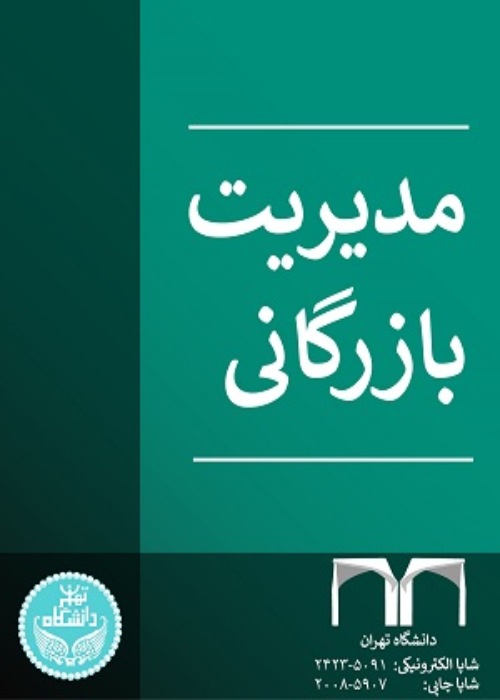Typology of Fake Social Media News in the Context of Iran: An Ethnographic Approach
Author(s):
Article Type:
Research/Original Article (دارای رتبه معتبر)
Abstract:
Objective
Fake news has become a serious ploy in marketing and consumers’ behavior, which may harm brands and companies. Although fake news is an old concept, its nature and form have been changing and are spreading online. In some cases, such fake news is accompanied by a video or an image, which is being reproduced at a very large scale with the maximum speed. On the other hand, the general popularity of social networks and online information has made it a critical issue in Iran. Thus, it is essential to address this issue. In general, this study aims to identify and present different types of fake news and respective dimensions in the context of Iran.Methodology
This study is based on the constructivist-interpretive and postmodern paradigms, and the ontology of the present study is idealistic. In this qualitative and fundamental study, the data were collected through semi-structured in-field interviews. The statistical population included social media users in Iran. The judgmental, non-probability, and snowball sampling methods were used, and theoretical saturation was obtained after conducting 16 interviews. The theoretical thematic analysis was used to examine the data. In addition, data analysis was performed using Atlas.ti 8 software.Findings
Five fake news were identified for the first time in Iranian context. However, two of them (pseudoscience and fake political news) have already been mentioned in the political literature. Fake health news, fake denial news, and fake governmental news are presented for the first time in this article. These findings are based on the meaning map extracted from the interviewees and indicate how they relate to the minds of consumers. Moreover, different dimensions of fake news have been discussed, and their definitions and characteristics have been provided.Conclusion
Marketers should be aware that official sources of information may be detrimental to their brands. Besides, any close relationships with the Iranian government may negatively affect their brand image. Consumers prefer informal information channels. In addition, lack of awareness and illusion of knowledge are two critical issues that should be taken into account in the interpretation of fake news on social networks in the context of Iran. Accepting fake news as the expiating information in the country's consumption context, its typology, and taking appropriate steps to provide information to the consumers can help maintain the reputation and image of the brand and product.Keywords:
Language:
Persian
Published:
Quarterly Journal of Business Management, Volume:13 Issue: 49, 2021
Pages:
814 to 844
magiran.com/p2364753
دانلود و مطالعه متن این مقاله با یکی از روشهای زیر امکان پذیر است:
اشتراک شخصی
با عضویت و پرداخت آنلاین حق اشتراک یکساله به مبلغ 1,390,000ريال میتوانید 70 عنوان مطلب دانلود کنید!
اشتراک سازمانی
به کتابخانه دانشگاه یا محل کار خود پیشنهاد کنید تا اشتراک سازمانی این پایگاه را برای دسترسی نامحدود همه کاربران به متن مطالب تهیه نمایند!
توجه!
- حق عضویت دریافتی صرف حمایت از نشریات عضو و نگهداری، تکمیل و توسعه مگیران میشود.
- پرداخت حق اشتراک و دانلود مقالات اجازه بازنشر آن در سایر رسانههای چاپی و دیجیتال را به کاربر نمیدهد.
دسترسی سراسری کاربران دانشگاه پیام نور!
اعضای هیئت علمی و دانشجویان دانشگاه پیام نور در سراسر کشور، در صورت ثبت نام با ایمیل دانشگاهی، تا پایان فروردین ماه 1403 به مقالات سایت دسترسی خواهند داشت!
In order to view content subscription is required
Personal subscription
Subscribe magiran.com for 70 € euros via PayPal and download 70 articles during a year.
Organization subscription
Please contact us to subscribe your university or library for unlimited access!


